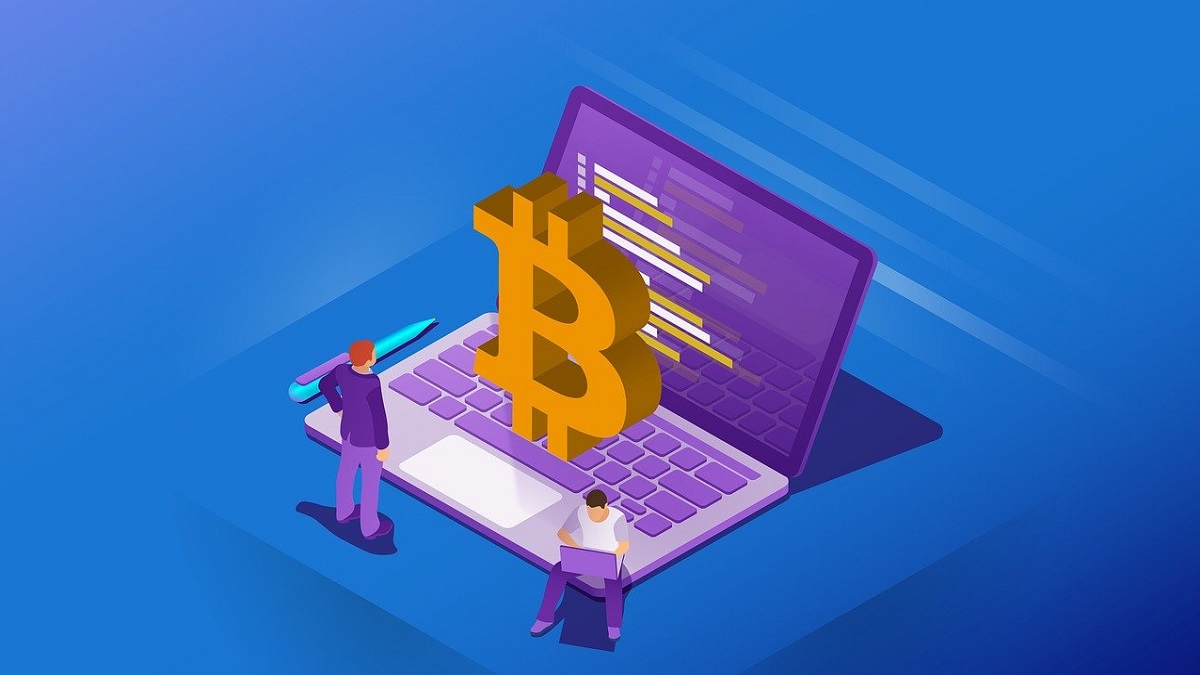
- New allowances for banks and growing institutional investments in bitcoin have prompted JPMorgan to set an ambitious new price target at $146,000.
- Experts predict that bitcoin will compete more intensely with gold as an alternative currency. But for that to happen, widespread investment would be needed to drive down volatility.
- Quontic Bank is hoping to demystify cryptocurrency by associating it with traditional banking products. The company is offering bitcoin as a reward to customers using its Bitcoin Rewards Checking account.
- CEO Steve Schnall doesn’t believe bitcoin is practical for everyday transactions yet. Rather, he views bitcoin as a wise investment to store and grow wealth.
After a year of economic volatility, 2021 could be the year that bitcoin gains broad investment appeal. Recently relaxed regulations have cracked the door to cryptocurrency-linked consumer financial products.
Earlier this month, the Office of the Comptroller of the Currency announced that federally regulated banks could use stablecoins to conduct payments. The OCC’s decision follows its decision to allow banks to provide custody services for crypto assets, including holding unique cryptographic keys.
MassMutual and Square have invested millions in bitcoin, and JPMorgan set a new long-term price target for the digital currency at $146,000. Standing between bitcoin’s current value and JPMorgan’s target are consumers who are still getting comfortable with the cryptocurrency. Few understand how cryptocurrencies work from a technical perspective, and some remain skeptical about the security of digital currencies.
One bank is hoping to change that with the nation’s first checking account that rewards users with bitcoin. Quontic Bank’s Bitcoin Rewards Checking ties the cryptocurrency to something people already use — their debit card. Users receive 1.5% Bitcoin on all eligible purchases.
“We believe that cryptocurrencies, and bitcoin in particular, will take on an increasingly important role in the coming years,” says Quontic Bank CEO Steve Schnall. “We see bitcoin as an important new asset class that will be embraced by a wider audience as more institutions begin adopting it in various ways.”
Schnall doesn’t believe bitcoin will become a common form of payment for everyday purchases anytime soon. Instead, he sees it as a way for investors to store wealth and to protect their portfolios from inflation.
The Federal Reserve injecting trillions of dollars into the banking system has stoked concerns over a weakening dollar. Schnall says bitcoin is something people should consider as a hedge against the devaluation of fiat currency and as an alternative to gold.
Schnall is not alone in his view that cryptocurrency could become a popular new asset class. In a memo published in late October, JPMorgan wrote, “The potential long-term upside for bitcoin is considerable as it competes more intensely with gold as an ‘alternative’ currency.”
Unlike older investors, who generally prefer gold, Millennials have flocked to bitcoin during the pandemic. But for bitcoin’s market cap to compete with gold, its volatility would have to drop substantially.
“We are seeing more and more large institutional investors moving portions of their liquid reserves to bitcoin,” says Schnall. “That should bode well for bitcoin valuations and also add some pricing stability.”
Schnall points out that bitcoin has several advantages over traditional bank rewards, such as cash back or airline miles: Cryptocurrencies are easily transferable, highly liquid, and have real cash value. While miles and points are a depreciating asset with limited utility, bitcoin rewards can appreciate.
“Many customers are interested in investing in bitcoin but are apprehensive about purchasing it due to lack of understanding or unwillingness to take the risk,” he says. “Our goal is to mitigate that risk by giving bitcoin away to checking users.”
Quontic isn’t the only company working to make bitcoin more accessible. Starting this year, PayPal users will be able to buy, sell, and hold selective cryptocurrencies directly within the PayPal app. The company also plans to extend this service to Venmo users in 2021.
PayPal’s move promises to make the concept of a “bitcoin wallet” more mainstream. More importantly, it will drastically expand the number of merchants that can accept cryptocurrency as payment.
Still, bitcoin’s high transaction fees are likely to discourage daily use. The cryptocurrency’s recent price rally has put downward pressure on its hash rate, which is used to calculate transaction fees. Average bitcoin transaction fees are currently hovering around $15.
Don’t expect your favorite coffee shop to take bitcoin in the near future. Small transactions remain cost prohibitive, thanks to the cryptocurrency’s fee structure. But as more financial institutions dabble in bitcoin, don’t be surprised if it becomes a sideshow — or even a staple — of consumers’ investment portfolios.
Leave a Reply